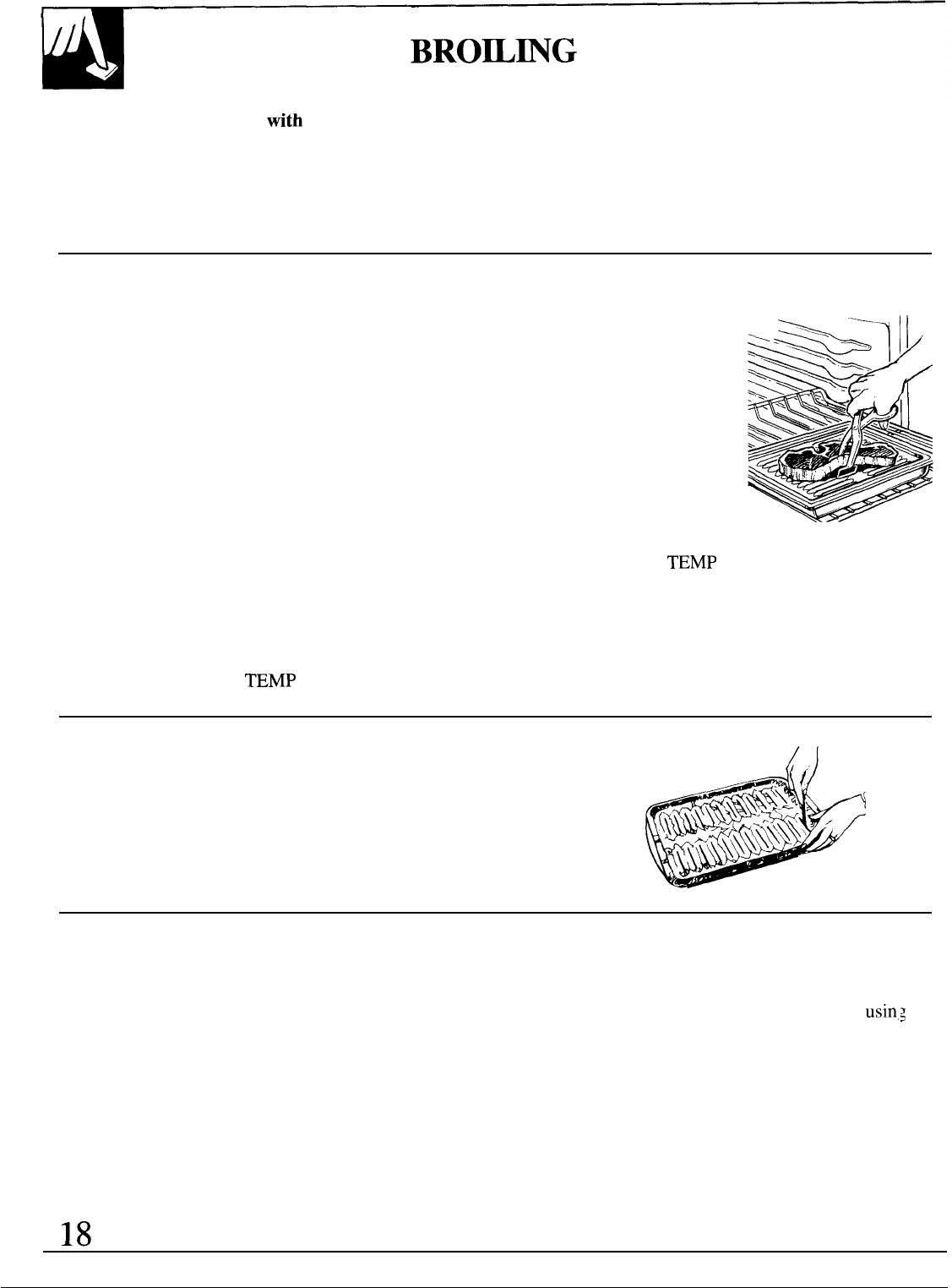
Do not lock the oven door
tith
Broiling is cooking food by direct
The oven door must be closed
the door latch during roasting.
heat from above the food. Most
during broiling.
This is used for self-cleaning only.
fish and tender cuts of meat can
be broiled. Follow these steps to
keep spattering and smoking to
a minimum.
How to Broil
1. Oven does not need to be preheated for broiling.
2. If meat has fat or gristle near the edge, cut vertical
slashes through it about 2 inches apart, but don’t
cut into meat. We recommend that you trim fat to
prevent excessive smoking, leaving a layer about
1/8 inch thick.
3.
Arrange
food on rack and position the broiler
pan on the appropriate shelf in the oven. Placing
food closer to flame sears the exterior and
increases surface browning of food, but also
increases spattering and the possibility of fats
and meat juices igniting.
4. Close the oven door but do not latch it. If the
door latch is moved to the right during a broil
operation, the door may lock and you may not
be able to open it until the oven cools.
5. Turn the OVEN SET knob to BROIL. For most
foods, turn the OVEN
TEMP knob to BROIL.
6. Turn most foods once
during cooking (the
exception is thin fillets
of fish; oil one side,
place that side down on
broiler rack and cook
without turning until
done). Time food for
about one-half the total
cooking time, turn food,
then continue to cook to
preferred doneness.
7. Turn the OVEN TEMP knob to OFF. Remove
broiler pan from oven and serve food immediately.
Leave pan outside the oven to cool.
Use of Aluminum Foil
You can use aluminum foil to line your broiler pan and broiler rack. However,
you must mold the foil tightly to the rack and cut slits in it just like the rack.
Without the slits, the foil will prevent fat and meat juices from draining to
the broiler pan. The juices could become hot enough to catch on fire. If you
do not cut the slits, you are frying, not broiling.
Questions & Answers
Q. When broiling, is it necessary
to always use a rack in
the pan?
A. Yes. Using the rack suspends
the meat over the pan. As the
meat cooks, the juices fall into
the pan, thus keeping meat
drier. Juices are protected by
the rack and stay cooler, thus
preventing excessive spatter
and smoking.
Q. Should I salt the meat before
broiling?
A. No. Salt draws out the juices
and allows them to evaporate.
Always salt after cooking. Turn
meat with tongs; piercing meat
with a fork also allows juices to
escape. When broiling poultry
or fish, brush each side often
with butter.
Q. Why are my meats not
turning out as brown as
they should?
A. Check to see if you are
usin,q
the recommended shelf
position. Broil for longest
period of time indicated in the
Broiling Guide. Turn food only
once during broiling.


















